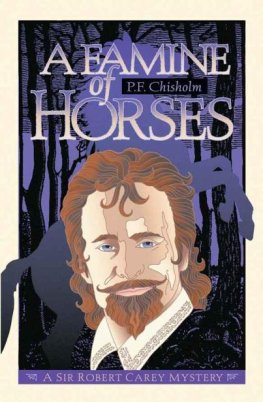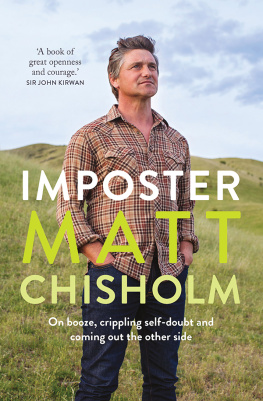Edward Chisholm - A Waiter in Paris
Here you can read online Edward Chisholm - A Waiter in Paris full text of the book (entire story) in english for free. Download pdf and epub, get meaning, cover and reviews about this ebook. year: 2022, publisher: House of Anansi Press Inc, genre: Detective and thriller. Description of the work, (preface) as well as reviews are available. Best literature library LitArk.com created for fans of good reading and offers a wide selection of genres:
Romance novel
Science fiction
Adventure
Detective
Science
History
Home and family
Prose
Art
Politics
Computer
Non-fiction
Religion
Business
Children
Humor
Choose a favorite category and find really read worthwhile books. Enjoy immersion in the world of imagination, feel the emotions of the characters or learn something new for yourself, make an fascinating discovery.

- Book:A Waiter in Paris
- Author:
- Publisher:House of Anansi Press Inc
- Genre:
- Year:2022
- Rating:5 / 5
- Favourites:Add to favourites
- Your mark:
- 100
- 1
- 2
- 3
- 4
- 5
A Waiter in Paris: summary, description and annotation
We offer to read an annotation, description, summary or preface (depends on what the author of the book "A Waiter in Paris" wrote himself). If you haven't found the necessary information about the book — write in the comments, we will try to find it.
A Waiter in Paris — read online for free the complete book (whole text) full work
Below is the text of the book, divided by pages. System saving the place of the last page read, allows you to conveniently read the book "A Waiter in Paris" online for free, without having to search again every time where you left off. Put a bookmark, and you can go to the page where you finished reading at any time.
Font size:
Interval:
Bookmark:

For Morgane & George
waiting noun
BrE /`weItI/
1. the fact of staying where you are or delaying doing something until somebody/something comes or something happens
2. the fact of working as a waiter or waitress
OXFORD ADVANCED LEARNER'S DICTIONARY
As I write this Paris is quiet. Her avenues empty. Her shops, bistros, cafs and restaurants all shuttered. Weeks of lockdown have reduced our worlds to the dozen or so square metres we call home.
The city holds its breath, dreaming of a return to normality, which in Paris means sitting in cafs or bistros, on terraces or in the parks. Of eating well and eating cheaply. This is the Paris we all love.
Nothing beats the luxury of the restaurant. You walk in, someone shows you to your table, a menu appears and then you sit back and relax and watch as the parade of plates, glasses and bottles appears and disappears before your very eyes like magic.
Though Paris arguably democratized dining out, it is still a luxury, the very definition of it. During lockdown, the unceasing buying, preparing, cooking and then washing up after ourselves have reminded us of that. Thats why we think so much about it. About dining out, food and of course restaurants.
And nowhere epitomizes the world of restaurants better than Paris.
A Waiter in Paris begins in November 2011. Three years after the financial crisis and almost two years after Id graduated from university. Fallow years during which Id held down a string of petty jobs in London that included call-centre work, labouring, flyering, and (possibly the high point!) selling soft pornography to Eastern European TV channels. All while I applied for other, more prestigious jobs. Jobs that didnt appear to exist anymore.
The question, on the surface, was relatively simple: in a post-financial crisis world, what were we, as university graduates with humanities degrees,
meant to do with our lives? The answer, however, evaded me. And so, with nothing tying me to London, short on money and options, I decided to take up an offer from a wonderful French girl, Alice, to come and live with her in Paris. She was moving there from London, and I could stay with her until I got on my feet. It was the perfect solution. Fulfilling my desire to have an adventure and finally get my life moving somewhere.
When I arrived, it was with a single bag of clothes and a couple of books, including the one that arguably had got me into reading and writing and excited by the idea of Paris many years earlier, George Orwells Down and Out in Paris and London. One of his lesser-known works, in which he recounts his time living and working in near-destitution, first in the French capital and then in the British. With Orwell we peered under the surface of what it was really like living in Paris back then, and it was far from the glimmering parties of F Scott Fitzgerald, or the literary salons hosted by Gertrude Stein, with Hemingway, Picasso and Matisse.
It was never my intention to work in restaurants. I naively thought Id find a proper job when I arrived in Paris but, as in London, it never materialized. And so, with time and money running out, like many,
I opted for waiting as a solution. It was a way to immerse myself in the city, avoid expats, teach myself French and, looking back, prove to myself that I could do something with my life; that I could be an active protagonist in my own story, instead of just a passive casualty of the economic times.
Unbeknown to me, it was the beginning of a great adventure slipping into the world of Parisian restaurants. A world, it turned out, that had changed little from when Down and Out was begun in 1929 the year of the last great financial crash. It was an experience that started a lifelong love affair with France and Europe. But also one that taught me the values of hard work and humility. It taught me that you can do something if you put your mind to it. And, likewise, that theres a whole world of possibilities out there. Youve just got to have the courage to believe in yourself and then throw yourself in.
In Paris, waiters are as omnipresent as the tricolore flag or the Eiffel Tower. They are everywhere: on the terraces working, out the back of restaurants smoking, propped on bars at the end of the night exhausted. Theyre so ubiquitous that we tend to ignore them, which is what they want. Unless theres a problem, when we let them know about it; or we give them half
a thought as we chuck a few coins on the table after a meal. But have you ever wondered what its like to be a waiter? To end up spending your life waiting tables? The truth is, its a cruel existence. You live week to week, often under sadistic managers, with a wage so low youre fighting each other for tips. Its physically demanding, frequently humiliating and incredibly competitive. A world hiding in plain sight governed by archaic rules and a petty hierarchy populated by the most incredible cast of characters youll ever come across: thieves, narcissists, former Legionnaires, wannabe actors, paperless immigrants, drug dealers
And with unfettered access to the kitchens of Paris, it certainly makes you think twice when choosing where you will spend your own pitiful wage when you do eventually eat out.
In total I spent more than four years doing various waiting and bar jobs across the city as I tried to build a career as a writer. A Waiter in Paris is that story, and although based primarily on an experience in one particular
restaurant, it is in reality an amalgamation of all my experiences. Its not really my story; I was merely an observer passing through. A camera with its shutter open, as Christopher Isherwood wrote of his time in Berlin. The real heroes of this story are the people I encountered there. To that end
I have changed the names of everybody mentioned in this story, including the name of the restaurant, which fortunately and rather unsurprisingly has since closed down.
Of course, this isnt really a story about a restaurant. Its a portrait of contemporary Paris, and by extension France. Slice a Parisian bistro in half and you will be presented with a startlingly accurate cross-section of contemporary French society. A multilingual, multi-ethnic, complicated and highly nuanced picture. With the rich and White up top, the poor and Black down below and everyone else including you in between. Yes, Paris may not be France, but all of France can be found in Paris.
If you dont believe me, the next time you go down those narrow stone steps in search of the toilet in a Parisian bistro, take a look in the kitchen and tell me how many Sri Lankan or Black faces you see. Theyre there for the same reason that I was up top, above ground, a Caucasian waiter.
As a result of my experiences both the highs and the lows and the incredible people I met and worked alongside, I felt almost duty bound to write this book. To give a voice to an invisible workforce. To tell it how it is.
So yes, the setting is Parisian, and the language French, but these stories are much more universal; theyre being played out right now in London, Paris, New York, Berlin, Madrid, Rome and beyond. We just often choose to ignore them. Focusing instead on what we want to see: the food, the decoration the faade.
And then theres the wonderful French language. How does someone who doesnt speak a word of French (full transparency: I dont even have a GCSE in a modern language) understand whats going on? Well, I quickly learned that, providing you understand the context of what is being
spoken about, even if you pick up only one in every ten words, you can often get the gist. The brain does a magnificent job of filling in the blanks which is how Ive tried to write the dialogue throughout the book. Unless indicated, everyone spoke French to me, making no concessions to my Englishness. As we will see, I muddled through.
Font size:
Interval:
Bookmark:
Similar books «A Waiter in Paris»
Look at similar books to A Waiter in Paris. We have selected literature similar in name and meaning in the hope of providing readers with more options to find new, interesting, not yet read works.
Discussion, reviews of the book A Waiter in Paris and just readers' own opinions. Leave your comments, write what you think about the work, its meaning or the main characters. Specify what exactly you liked and what you didn't like, and why you think so.










